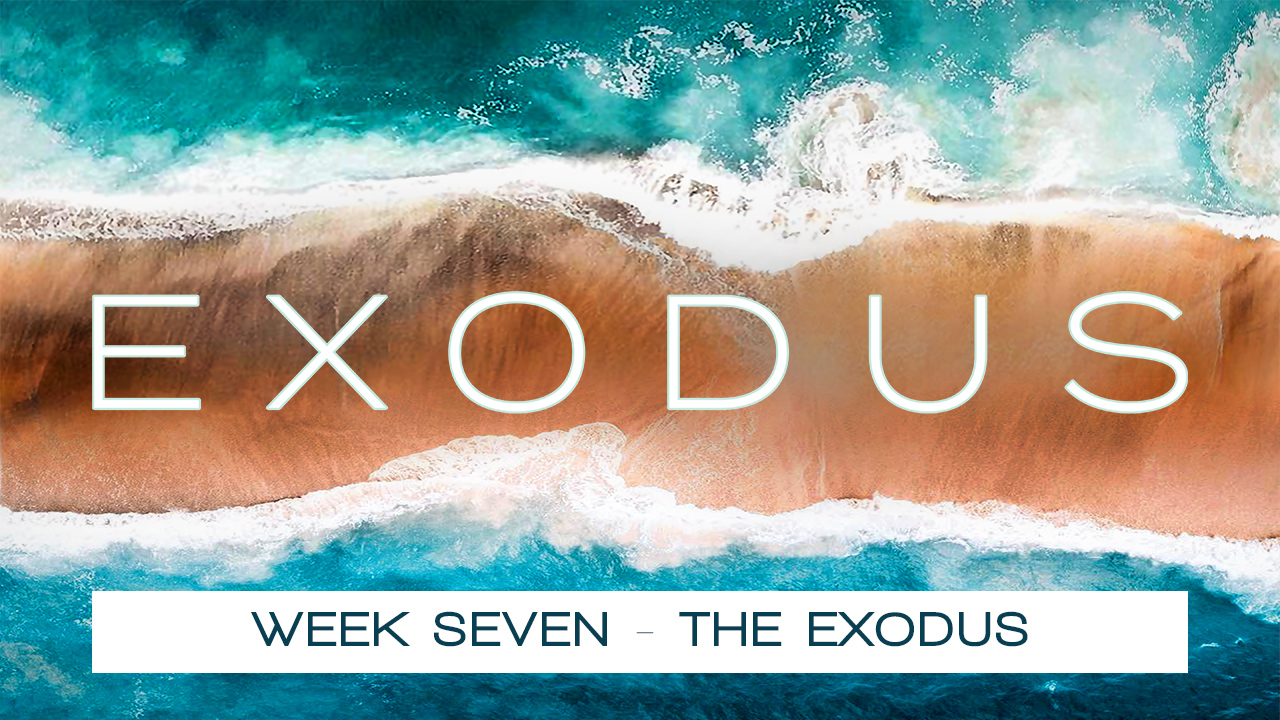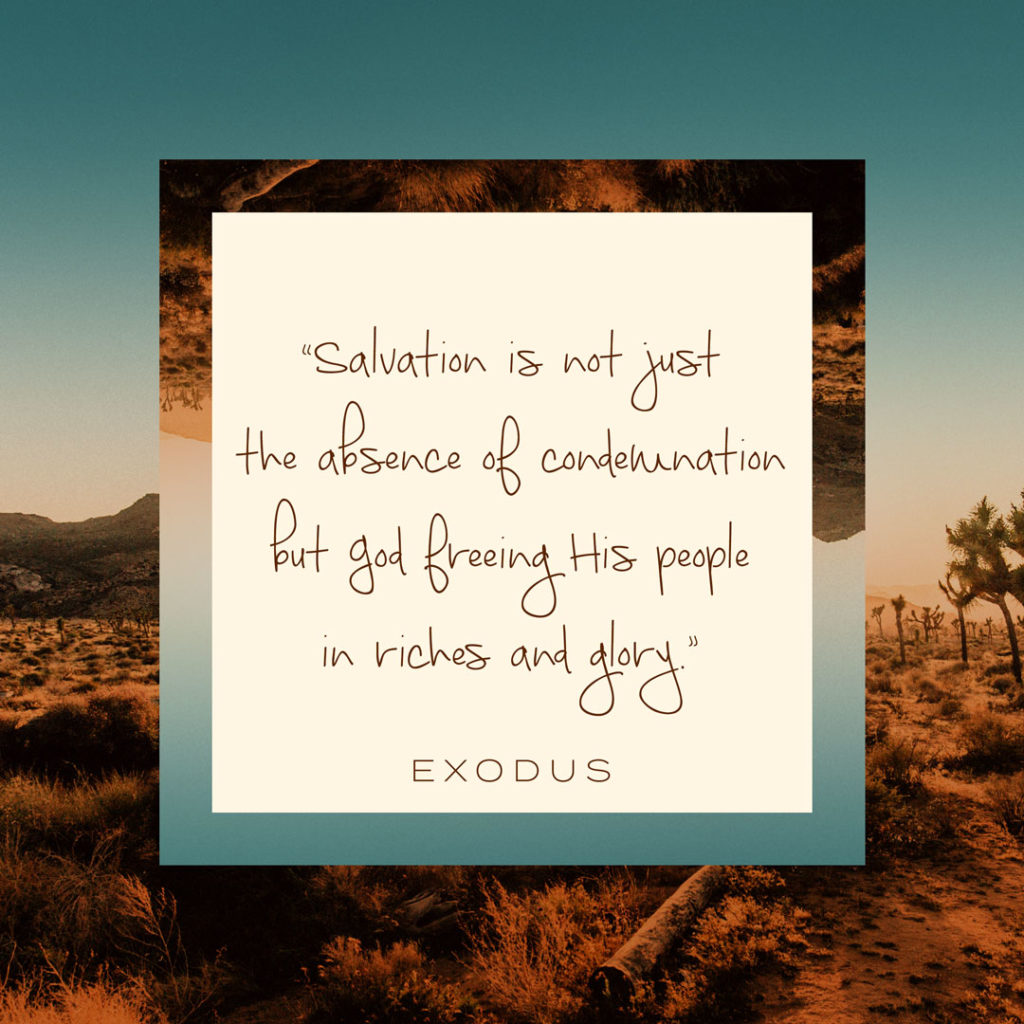
03 Oct Sermon Recap | Exodus | The Exodus
The exodus is the Old Testament picture of the cross for us. The Israelites, once slaves of the Egyptians, are freed from slavery, lavished in riches, and prepared to reconstitute their identity as a new nation. Despite Pharoah’s attempts to thwart God’s promise to rescue the Israelites, God’s faithfulness cannot be frustrated, and His promises never fail.
Scripture References
Exodus 12: 30-50
Exodus 10:28
Ephesians 1:7-8
Matthew 6:31-33
Center My Life | Austin Stone Worship | iTunes
Revelation 5:13 • Matthew 6:19-23 • Romans 12:1
What a Savior | Hillsong Worship | iTunes
John 9:35-39 • Psalm 71:14 • Psalm 149:4
You Are Faithful | The Village Church | iTunes
John 9:35-39 • Psalm 71:14 • Psalm 149:4
Christ be All Around Me | All Sons and Daughters | iTunes
Seas of Crimson | Bethel Music | iTunes
Isaiah 53:4-5 • Matthew 26:28 • Revelation 12:11
This We Know | Vertical Worship | iTunes
1. When have you apologized to someone after sinning against them,but you were actually just trying to manage the consequences? What is the difference between saying “I’m sorry” and genuine repentance? If there is a current situation in which you know you need to seek forgiveness, are you trusting God with a repentant heart and obeying despite the circumstances, or are you trying to control the consequences?
2. Pharoah, the most powerful man in the entire world, repeatedly contradicts himself, reminding us that no power of this world can keep its promises. What promises are you trusting the world to fulfill for you? What desires are you counting on the world to satisfy instead of to Jesus? How are these promises and desires different from what God promises to us?
3. Our faith is not about the obligation to obey our Creator but about enjoying the riches, or spiritual activities, that are available to us in Christ. What is an example of a time you have served God out of obligation? On the other hand, how have you obeyed out of anticipation or gratefulness? Describe the level of satisfaction from obliged versus joyful obedience?
4. In what circumstances do you struggle to believe that Jesus is faithful to keep His promises? Under which of the following categories do you fall:
– You are slow to obey and have not recognized the relationship between obedience and your ability to see fulfillment of His promises.
– You are in difficult circumstances and unable to see past them to God’s sovereignty and goodness.
– You are in a situation where your focus is on the broken world and its unkept promises, and you struggle to believe that God is in control.
Thoughts to Consider
– In Exodus 12:35-36, we see that the nation of Israel is driven out of Egypt, out of 430 years of slavery, dressed in fine clothing and carrying the wealth of the Egyptians. Serving as the best parallel for salvation in the Old Testament, the exodus shows us how God keeps His promises. This is how God frees His people—not only with the absence of condemnation, but with the riches that are now ours in Christ.
– The timing and events of the exodus are a direct fulfillment of the promise from Exodus 3:19-22. God did exactly what He said He was going to do, exactly how He said He would, because He is both a promise maker and a promise keeper.
– There is a direct and corresponding relationship between our obedience and our ability to see God’s promises.
– God commanded the Israelites to commemorate yearly His deliverance of them from slavery in Egypt for every generation to know how He kept His promise. In the same way, as believers in our busy culture, we must find ways to commemorate the fulfillment of God’s promises from His Word and remember what He is doing in our life now.
– If you are not a Christian, spend some time evaluating the powers of this world and the things you are trusting in. Are they delivering? Do they come through?

“Our obedience is not about obligation but anticipation.”
“Salvation is not just the absence of condemnation but God freeing His people in riches and glory.”
“The promises of this world will fail us—but God never will.”
“Proof of God’s faithfulness is the death and resurrection of Jesus.”
“There is a corresponding relationship between obedience and our ability to see fulfillment of God’s promises.”



